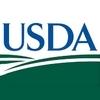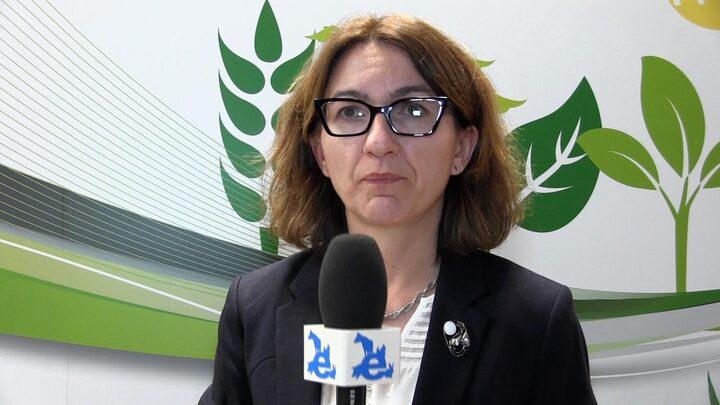Explore all the information on
Coccidiosis in poultry
Coccidiosis is a protozoal disease causing diarrhea, ,weight loss and decreased production in poultry. It can be fatal. Prevention is key and is achieved with use of anticoccidials or vaccination. Diagnosis is by fecal flotation to detect oocysts, often in combination with characteristic necropsy findings. Coccidiosis is caused by protozoa of the phylum Apicomplexa, family Eimeriidae. Most species affecting poultry belong to the genus Eimeria and infect various intestinal sites. The disease course is rapid (4–7 days) and is characterized by parasite replication in host cells with extensive damage to intestinal mucosa. Coccidia in poultry are generally host-specific, and the different species infect specific portions of the intestine. However, in game birds, including quail, the coccidia may infect the entire intestinal tract. In poultry, game birds reared in captivity, and wild birds, coccidiosis occurs worldwide.
Background Avian coccidiosis impairs the growth and feed efficiency of infected chickens [1]. There were evidences that resistance to avian coccidiosis is associated with inheritance and coccidiosis resistant line could be established by selection [2]. The resistance to avian coccidiosis QTL has been identified near two microsatellite markers on chromosome 1 [3,4]. Associations between parameters of resistance to coccidiosis and single nucleotide polymorphisms (SNPs) in 3...
Comments : 0
Recommendations: 1
Victoria Hansen (USDA) shared her research on short chain fatty acids as a promising feed additive to mitigate coccidiosis in poultry, during the 8th Symposium on Gut Health in Production of Food Animals in St. Louis, USA....
Comments : 0
Recommendations: 1


Effectiveness of Bacillus licheniformis-Fermented Products and Their Derived Antimicrobial Lipopeptides in Controlling Coccidiosis in Broilers (Extract)
Suggested link
Derek Detzler (JEFO) talked about antibiotic-free production and poultry vaccination, during the 1st PoultryUniverse Coccidiosis Congress in Curitiba, Brazil....
Comments : 1
Recommendations: 8
Sergio Luiz Vieira (UFRGS, Brazil), spoke about his experience with vaccine production and use when treating this disease, during the 1st PoultryUniverse Coccidiosis Congress in Curitiba, Brazil....
Comments : 4
Recommendations: 2


Phytogenics are here to stay: Natural, Sustainable and Effective
Suggested link
INTRODUCTION Avian coccidiosis is major parasitic disease of high economic concern in the poultry industry worldwide and is caused by at least seven distinct species of Eimeria apicomplexan protozoa that infect the various areas of intestinal mucosa. The economic loss for avian coccidiosis is estimated to be more than $3 billion worldwide (Williams, 1999) and this cost includes in-feed medication, mortality, impaired growth rate, inefficient feed utilization and reduction in egg...
Comments : 1
Recommendations: 2
INTRODUCTION
Coccidiosis is a ubiquitous intestinal protozoan infection of poultry seriously impairing the growth and feed utilization of infected animals (Lillehoj et al., 2007; Lillehoj and Lillehoj, 2000). Conventional disease control strategies relied heavily on chemoprophylaxis costing the industry tremendously. Existing vaccines comprise live virulent or attenuated Eimeria strains with limited scope of protection against an ever evolving and widespread...
Comments : 0
Recommendations: 0
Greg Mathis (Southern Poultry Research) offered his insights on what to do and use to control and mitigate this diseases, including essential oils, butyric acid and other additives, during IPPE 2018 in Atlanta, USA....
Comments : 36
Recommendations: 6
Elise Myers (MSD) spoke on the evolution of vaccines and tolerance of anticoccidials, among other topics, during the 1st PoultryUniverse Coccidiosis Congress in Curitiba, Brazil....
Comments : 12
Recommendations: 2
Fiona Tomley (Royal Veterinary College) and Doug Korver joined Elizabeth Santin and Ricardo Hayashi to share their insights on Coccidiosis challenges, poultry immunity and vaccination, during the 1st PoultryUniverse Coccidiosis Congress in Curitiba, Brazil....
Comments : 3
Recommendations: 0
Background The apicomplexan E.acervulina specifically infects the duodenum resulting in diarrhea, poor feed conversion, and reduced body weight gain, thereby incurring large economic losses to the poultry industry [1]. Traditional disease control methods have relied on chemoprophylaxis with anti-coccidia drugs or immunization with live/attenuated parasite vaccines [2]. However, novel strategies are sought due to increasing governmental restrictions on the commercial use of...
Comments : 0
Recommendations: 0
Introduction Coccidiosis causes a great economic loss in the poultry industry due to high rate of morbidity and mortality, sub optimal growth and conversion efficiency and loss of egg production (1). Mortality is mostly marked in caecal form of the disease in young chicks whereas morbidity is well documented in the intestinal form of the disease in adult birds. Etiology The disease is caused by a protozoan parasite...
Comments : 16
Recommendations: 0
Billy Hargis (University of Arkansas) and Christi Swaggerty (USDA) joined Joao Batista Lancini and Saadia Nassik to comment on poultry gut health and vaccination, during the 1st PoultryUniverse Coccidiosis Congress in Curitiba, Brazil....
Comments : 5
Recommendations: 3
Billy Hargis (University of Arkansas) talked about the costs of Coccidiosis, including malabsorption, welfare issues and promotion of necrotic enteritis, among other factors, during the 1st PoultryUniverse Coccidiosis Congress in Curitiba, Brazil....
Comments : 4
Recommendations: 5
Dino Garcez (DSM), Elise Myers (MSD), Jesus Rubio (Hipra), Tobias Fernandes Filho (Boehringer-Ingelheim), Deyse Galle (Elanco), Giankleber Diniz (Ceva) and Eduardo Muniz (Zoetis) discussed solutions and initiatives taken in the poultry industry, during the 1st PoultryUniverse Coccidiosis Congress in Curitiba, Brazil....
Comments : 1
Recommendations: 1
Samuel Rochell (University of Arkansas) explained his research on nitrogen and fat digestibility of primary ingredients, during IPPE 2019 in Atlanta, USA....
Comments : 3
Recommendations: 1
Grace Albanese (University of Georgia) explained this method to analyze samples and identify Eimeria species, during IPPE 2019 in Atlanta, USA....
Comments : 0
Recommendations: 2
Charles Hofacre (Southern Poultry Research) talked about the use of organic and inorganic zinc to help in the recovery of affected flocks, during IPPE 2019 in Atlanta, USA....
Comments : 0
Recommendations: 4
Christi Swaggerty (USDA) talked about Eimeria infection, vaccines and nutrition, among other aspects, during the 1st PoultryUniverse Coccidiosis Congress in Curitiba, Brazil....
Comments : 2
Recommendations: 2


Veterinary APIs Market Update: Price Trends & Key Insights – February 2025
Suggested link
Greg Mathis (Southern Poultry Research) also discusses the advantages of doing a battery cage study, during IPPE 2019 in Atlanta, USA....
Comments : 0
Recommendations: 7






.jpg&w=3840&q=75)



















.jpg&w=3840&q=75)












